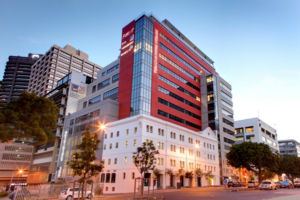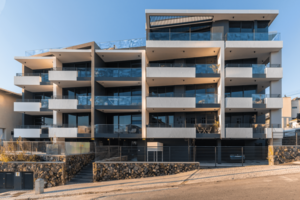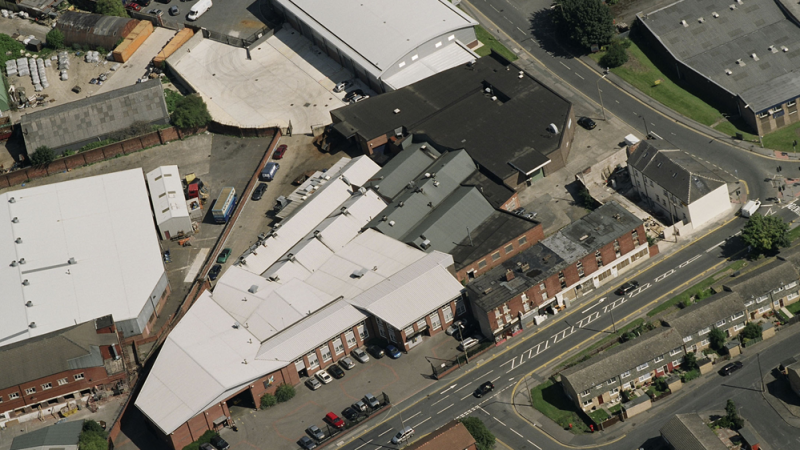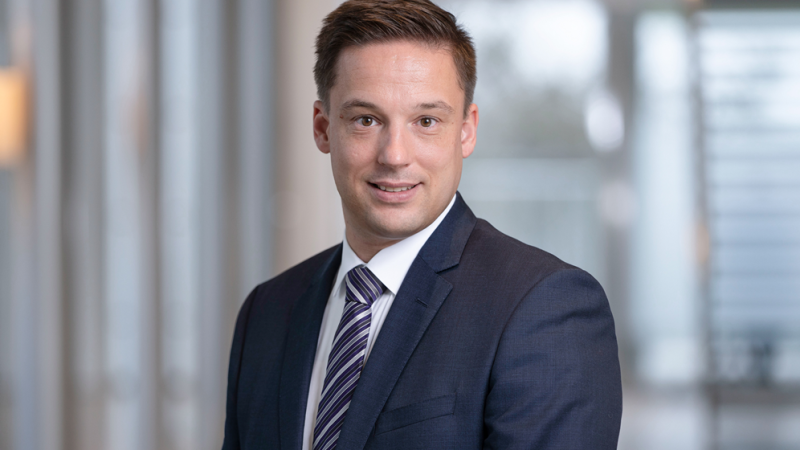In 1978 a quantity surveying company was established in the town of East London, South Africa. Before long, it was expanding into Durban and Cape Town offering quantity surveying and cost engineering services. But, after 30 years of steady growth, the company hit a crisis that would completely change its path. “In 2008 we saw the onset of the World Economic Recession and found we were struggling to survive,” says Dave Williams-Jones, CEO of FWJK Developments. “Projects were being cancelled all over for economic reasons.”
Williams-Jones recognised that FWJK simply would not be able to survive in its existing form. To secure and re-invent its future, he developed a whole new model for the business that would prove to be pivotal not only for the company, but for investors across the whole of South Africa and abroad.
“I invented a co-development-at-cost methodology for office blocks, medical centres, factories and residential buildings,” Williams-Jones recalls. “It took off like the proverbial sugarcane fire. Investors couldn’t believe they could buy an entire office block or an office suite at cost price, which was about 25% below the inflated profit-driven price at which profit-driven developers were offering the same product.”
He was living in Durban at the time, and having created this new approach, FWJK went on to develop ten large office blocks in a new business park in Umhlanga, Durban over the next ten years. It established a groundbreaking precedent in KwaZulu-Natal, and from there, Williams-Jones began to expand the business’s possibilities.
“I then expanded the model from purely office blocks and mini and micro-industrial spheres and embarked on residential co-development-at-cost projects,” Williams-Jones says. “They were hugely popular and always sold out after only a month or so.”
The co-development-at-cost, professional fee-driven model that FWJK has established works by assembling projects and offering them for sale on a sectional title basis. Customers invest through an equity contribution of between 20 to 25% in a new shelf company, with development finance arranged through Investec Bank.

“These offerings proved to be a resounding success with the result that we have completed 40 co-development projects totalling R10 billion and today we continue to roll out new co-development projects.”
Our largest residential co-development project to date is a block of 381 apartments in the City Centre of Cape Town we named 16 on Bree and currently, we are developing The York, which is a similar project in Umhlanga, Durban currently under construction.
“That is our methodology,” Williams-Jones says. “We create our own workflow and invest in the development alongside our co-shareholders in a professional fees-for-equity swap.”
Instead of drawing a portion of its professional fees, FWJK converts those fees into equity, acting as an equal co-development partner with other shareholders in the projects it develops. These projects can be apartment blocks or industrial mini unit complexes, creating opportunities for investors to acquire these new properties at cost.
“The advantage of our methodology is that it lets you purchase your office suite, industrial factory or apartments at cost, which is about 25% below prices in the current retail market,” Williams-Jones explains. “In effect, we offer a wholesale price structure for investors as opposed to a standard retail purchase option.”
With the larger residential developments, FWJK sells its apartments in stacks to keep the number of investors below 50. Investors who buy a stack of say four apartments then keep say two apartments and sell the other two at single-sale retail prices. They then receive the profits of the on-sold apartments acquired cost and effectively obtain their remaining two apartments at actual cost less around 10% to 15%. The stacks themselves vary in size from as many as 60 apartments to as few as two or four apartments.
Of course, by making its customers its investment partners, FWJK also takes on some of the associated development risks. Investors buying a stack of apartments or a mini factory unit are greenlined by Investec Bank after the inaugural meeting of investors once all the shares in a project have been sold. A vote to proceed with the project is taken and that is the launching stage of each development project. All construction works are tendered so that investors are guaranteed the most competitive end price at completion.
Williams-Jones explains that over the last seven years, Investec Bank has lent FWJK R2,5 billion spread over eight different projects, and the company has settled all of its development bonds in full. All shareholders have to be greenlined in the eyes of Investec Bank which is a process that includes the provision of financial statements and other financial details that satisfy the bank that every investor in the development has the financial wherewithal to complete the transfer of their properties upon project completion.
A Foundation of Learning
Property development is a discipline that requires a broad range of knowledge and skills, and as a result, FWJK employs its own development managers, architects and quantity surveyors and outsources all engineering services.

“We have developed significant learning and development strategies and methodologies, and we are continuously training staff as they come on board and progress up the ranks to become senior architects, quantity surveyors and development managers,” Williams-Jones says. He adds that “while there are university degree programs for property management and project management in South Africa, actual property development is not covered in any specific university degree itself.”
“Development is an art that is learned in the office and on the site,” Williams-Jones explains. “But it has become a profession in my eyes. We are finding a lot of younger professionals who dream of becoming property developers and we are attracting young graduates and turning them into seasoned property developers.”
This is how FWJK has built a team capable of winning the prestigious PMR Africa Awards on multiple occasions. “We are proud of them, and they have proved that as a development company, we aspire to a high level of excellence,” says Williams-Jones. That excellence is a core part of FWJK’s vision for the future. “We will continue to be a development company as well as a professional services company, and the methodology that we have established over time keeps the pipeline of projects running ahead of us and is set to remain our main source of income for the firm” Williams-Jones advises.
At the same time, FWJK will continue to undertake other professional work for major property development companies such as Redefine and Growthpoint Properties, two of the largest real estate investment trusts in South Africa.
“We are a dual-fronted firm of professionals with a professional services arm and a developmental arm,” Williams-Jones concludes.
It is an approach that has shown amazing growth and results and we remain confident that the company will continue to build on its co-development at cost methodology.







